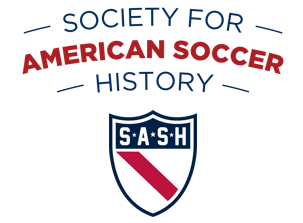One of the greatest American players of the first half of the 20th century, whose career included two World Cups and a remarkable 11 U.S. Open Cup finals in 15 years. A tall man with a very hard shot, his reputation never spread internationally very much because he declined several overseas professional offers.
Gonsalves, who was born in Bristol, R.I., grew up in one of the United States’ great early soccer hotbeds, Fall River, Mass. (he lived the last years of his life in another, Kearny, N.J.). The midfielder and inside forward turned pro with the Boston Wonder Workers of the American Soccer League in 1927, and won the first of his three ASL titles in his first season with that team. He was transferred to the Fall River Marksmen in 1929, and with them began a run of six consecutive U.S. Open Cup victories. He won in 1930 with Fall River, in 1931 with a team that began the tournament as Fall River Marksmen but finished it as the New York Yankees, and in 1932 with the New Bedford Whalers team that absorbed the Fall River Marksman/New York Yankees franchise. After the end of the original ASL, Gonsalves and several of his teammates moved to St. Louis, where their Stix, Baer & Fuller team won the Open Cup in 1933 and 1934, giving Gonsalves five in a row. He made it six in 1935 after that team had changed sponsors and become Central Breweries. Another change turned the team into St. Louis Shamrocks, which was the losing finalist in 1936 and 1937.
Gonsalves wasn’t through with the Open Cup yet, however. He played for Chicago Manhattan Beer when it was the losing finalist in 1939, and then returned east and won the cup twice more with Brooklyn Hispano in 1943 and 1944.
Gonsalves won the double twice, taking the U.S. Open Cup and the ASL championship in the same season. Those were with Fall River in 1930 and Hispano in 1943.
During Gonsalves’ years at the top of the game, U.S. national-team activity consisted mostly of the World Cup, but Gonsalves didn’t miss any of that. He played all three of the United States games in the 1930 World Cup and both its qualifying game and its lone game in the World Cup itself in 1934.
Inducted in 1950.
